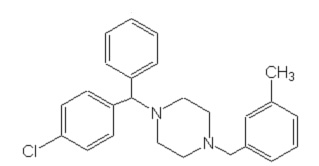Survival
Motion sickness can strike almost anyone, and it's not limited to boats.
En route to hunting camp, the bush plane begins to bounce and tilt like a carnival ride. The air in the cabin is hot, tinged with the sharp scent of fuel and exhaust. Then you feel it-the first hint of motion sickness. A malady common not only on boats and ships, motion sickness happens frequently in airplanes, cars, and trains. Anyone who has suffered motion sickness and its symptoms-- nausea, dizziness, cold sweats, headaches, vomiting-- knows the meaning of misery.
The suffering can pass in a few (very long) minutes or hours, but its impact can transcend discomfort. Seasickness, according to one authority, is the medical problem most frequently responsible for maritime searchand-rescue operations around the world. This is because it can lead to a dangerous state of physical and mental deterioration, initiating symptoms that can include severe dehydration, loss of judgment, impaired manual dexterity, and even the loss of the will to survive in emergencies.
Those who have never experienced what the French call mal de mer often have a difficult time sympathizing with its victims, although sooner or later most skeptics learn the truth firsthand. Ninety percent of humanity is vulnerable to motion sickness in one form or another, while a lucky 10 percent are immune. Some of us have thought we were immune, only to discover otherwise. The odds are that sooner or later it will happen to you.
The Nature of the Beast
Motion sickness, according to the most accepted theory, is directly related to our sense of balance and equilibrium-what aeronautical and space researchers call spatial orientation. This is what our brain tells our body about where it is in space. For instance, the brain and body monitor the direction we're facing, the direction we're moving toward, and whether we're turning or standing still.
Our sense of balance, which seems so simple and ordinary, is actually maintained by a complex interaction of the nervous system. Directional motion-forward-- backward, side-to-side, and upand-down-is monitored by the inner ears. Our eyes monitor if the body is upside down, right side up, or tilting. There are even receptors in the skin and muscles that tell the brain which part of the body is down and which is up, and which parts are stationary or moving.
The brain and central nervous system continually process all input. However, if "motion central" gets conflicting messages from the various sensory systems, dizziness can result. Worse, it can lead to seasickness, which is a "neural mismatch" that stimulates the urge to vomit. Symptoms of seasickness include slight to strong nausea, yawning, dry mouth or salivating, drowsiness, headache, dizziness, pallor, cold sweats, belching, dry heaves, and vomiting. If untreated, the illness can last hours or days, even well after the problematic motion has ceased. (This condition is known as the mal d'embarquement syndrome.)
Prevention and Treatment
The best way to beat motion sickness is to prevent it in the first place. Eat lightly and stay well hydrated before embarking on any ride or voyage where motion sickness is a possibility. Before and during travel, avoid alcohol and spicy or greasy foods. Position yourself carefully so that you're riding where physical motion is minimized. On a plane, this means sitting up front, or over the wings; in a boat, move amidships (toward the middle), or aft (toward the stern), where the heaving and rolling are less severe. Avoid areas where fumes from fuel or exhaust or strong odors from a kitchen or galley might contribute to incipient nausea.
The most important key to avoiding motion sickness is to try to ride where your eyes will see the same motion that your body feels. For instance, stay up on the deck of a ship, watching the movement of the horizon, rather than holing up below, reading a book. On a plane, sit by a window and look outside. While in motion, avoid extended, close tasks, such as reading, prolonged map consultation, or gear maintenance. Note also that facing backward in a seat increases the likelihood of becoming motion sick.
Medications that help ward off mal de mer are best taken several hours or more before traveling, since these drugs are much better at preventing symptoms than curing them. Over-the-counter products include Dramamine (dimenhydrinate); Antivert and Bonine (meclizine HCI); Marezine (cyclizine); and Sturgeron (cinnarizine).
All are proven preventatives, but all can have negative side effects, including drowsiness, headache, dizziness, dry mouth, or blurred vision.
To determine which drug has the fewest or no side effects for you, experiment with each while safely on land, well before traveling. Also, be sure to read the labels for "contraindications" or potential bad reactions when used in combination with other drugs, or if used by those with certain physical conditions (such as enlarged prostate, or pregnancy).
A more potent and long-lasting option is a scopolamine patch (Transder-Scop), which is placed behind an ear. The patch gradually releases its drug for up to three days through the skin, blocking the nerve pathways that stimulate nausea. Potential side effects of the patch can include dry mouth and drowsiness, with some nausea and dizziness following long-term withdrawal.
For a natural herb preventative, try ginger root, which has a long anecdotal history as an antiemetic. The suggested dose is two 500-milligram capsules every six hours.
Copyright Sports Afield, Inc. Jun/Jul 2003
Provided by ProQuest Information and Learning Company. All rights Reserved



